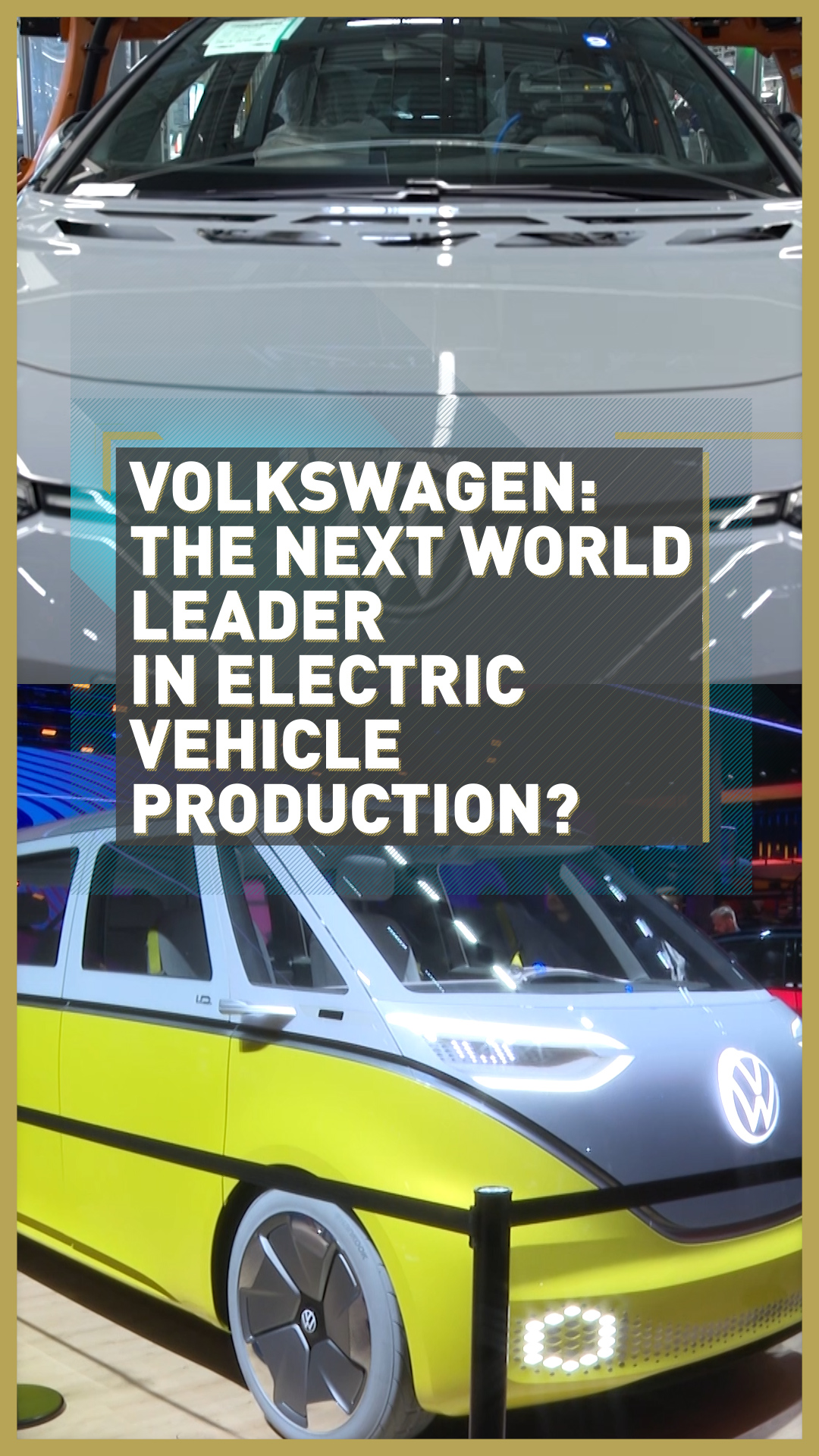02:43

After nearly 120 years of producing internal combustion engine cars, Volkswagen's Zwickau plant in eastern Germany has gone all-electric.
The last fossil-fuel car has left the assembly line, with the factory preparing to start producing 330,000 electric vehicles (EVs) a year.
The transformation of the Saxony plant forms a key part of VW's plans to rival Tesla as the world's leading manufacturer of electric cars.
The car maker's spokesman, Carsten Krebs, said: "The global rollout of EV starts in Zwickau, where we will produce more than 300,000 cars a year. But this is just the starting point, much more is coming. We will bring eight other plants to life in the near future, two of them in China."
After the diesel emissions scandal, VW has committed to spending big on battery-powered vehicles.
Nearly $1.5 billion has been spent renovating the Zwickau plant, which was forced to close for six weeks during the coronavirus pandemic. Production has now resumed at a rate of 300 EVs a day, which will rise to 800 at the end of the summer season.
The EU has slapped strict emissions targets on car makers to meet CO2 targets, with bans on diesel cars in major cities such as Paris and Madrid from 2025. The Chinese market will also be key as Beijing works to reduce emissions.

Electric cars require fewer parts and therefore fewer people but Volkswagen plans to create new jobs in the electromobility sector. /CGTN
Electric cars require fewer parts and therefore fewer people but Volkswagen plans to create new jobs in the electromobility sector. /CGTN
Reinhard de Vries, managing director of technology and logistics at VW, said meeting emissions targets was a key priority, particularly in Europe.
"We have huge requirements now, set by the EU, and political guidelines we have to fulfil. There is no better opportunity to go into electromobility and produce large production volumes of EVs to achieve these targets. That's our target for the next few months and years."
But the changes in the car industry could come at a cost. Back in January, a report by the NPM research agency predicted 400,000 jobs in the German car industry could be gone by 2030, as the sector transitions to electro mobility.
Electric cars mean fewer parts and therefore fewer people. Last year, there were 25,000 job losses at Daimler and VW, but job creation in the electric sector.
VW hopes its pioneering Zwickau plant can lead the way as a revolution begins.
Read more: Israel builds network of urban delivery drones amid COVID-19 outbreak